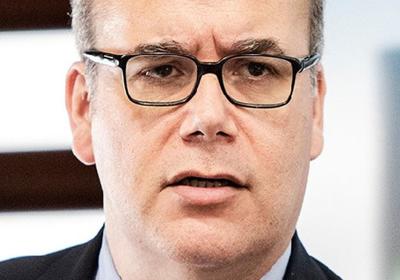CARICOM countries, including T&T, should brace for an economic downturn caused by Covid-19 and the International Monetary Fund (IMF) is on standby to assist.
This sobering warning is coming from Maximo Torero Cullen, chief economist and assistant director general of the Food and Agriculture Organisation (FAO), which is a specialised agency of the United Nations.
He was speaking yesterday during a webinar meeting, organised by the FAO and the Caricom Secretariat, on enabling agricultural investment in the Caribbean for an effective response and post-Covid-19 recovery.
Torero-Cullen said significant declines in growth in the major developed countries around the world plus public health restrictions as a result of Covid-19 will seriously impact growth in Caribbean countries, which depend on them for tourism.
T&T, Guyana and Suriname, which depend on the oil and gas sector, will not be spared either because of declining international prices in those commodities, he said.
“There will be a significant problem for Caricom countries in terms of economic activity.”
Torero-Cullen said the significant collapse in tourism will continue for a number of months.
Tourism can be re-activated if a vaccine for Covid-19 is found, he said, but added, “We know a vaccine will not be available for 12 to 18 months.
“Let’s assume we find the vaccine by December, the recession will still be there.
“We’re talking of a recession that will be more than the 12 months we initially talked about.”
He said the IMF has projected a global drop in GDP to three per cent, which can lead to a drop in GDP growth in Caribbean countries of around 6.2 per cent in 2020.
He warned if there is a second wave of Covid-19 and GDP growth in Caribbean countries decline by ten per cent, the situation would be critical.
Data from the IMF indicate that the Washington DC-based institution lent 11 countries in the Western Hemisphere US$3.48 billion between April 14 and May 1.
He said a decline in revenue, combined with increasing external debt will affect the Caribbean’s capacity to import the food they do daily.
Global undernourishment numbers can jump from 14 million to 18 million, he said.
Torero-Cullen said the IMF has mechanisms in place to assist countries economically impacted by Covid-19, including the Caribbean.
He said it was very important for Caricom countries to target their social assistance programmes “because it could be very different to what they used to have”.
Farmers also need to be assisted in planting food, he said.
Other Caricom officials who spoke at the meeting called for ramped up regional integration, saying intra-regional trade can fill the void left by a lack of imports and exporting capabilities.
Caricom assistant secretary general, Joseph Cox said there is now renewed impetus for regional integration.
Saboto Caesar, agriculture minister in St Vincent and the Grenadines, who is also on the Caricom Agriculture and Food Task Force, noted there are already programmes in place to ramp up domestic production.
He said, however, there are a number of issues to be addressed to facilitate the movement of food intra-regionally.
He strongly believed wealth can be created within the region through intra-regional trade but said marketing intelligence and easier shipping, among other things, need to be addressed.






